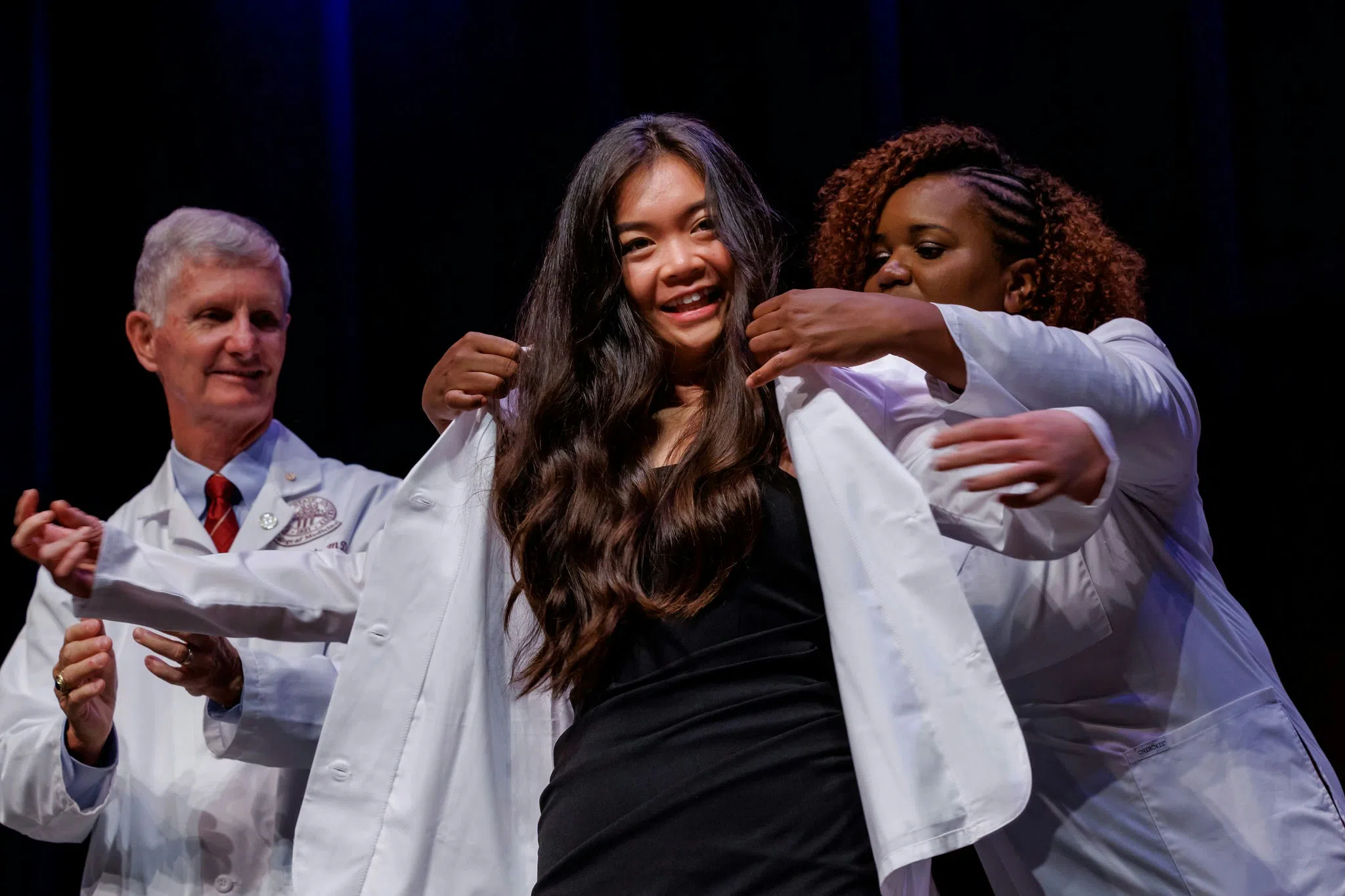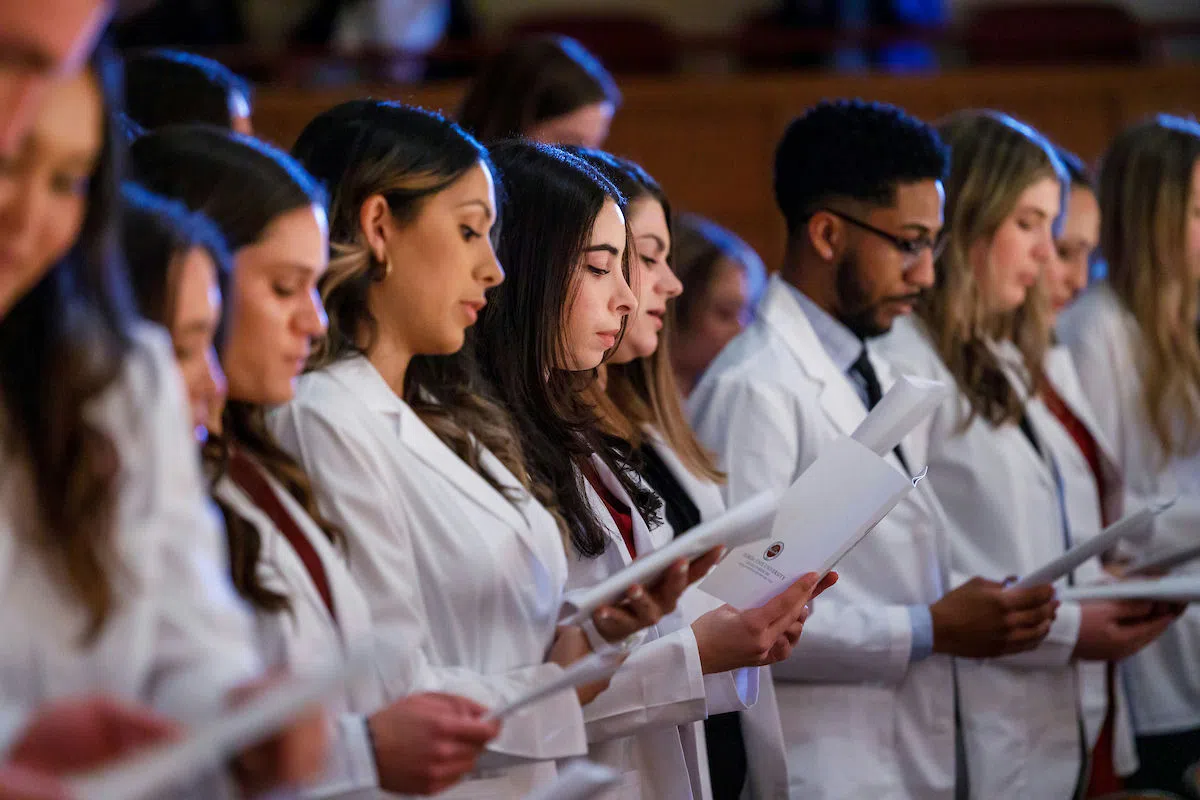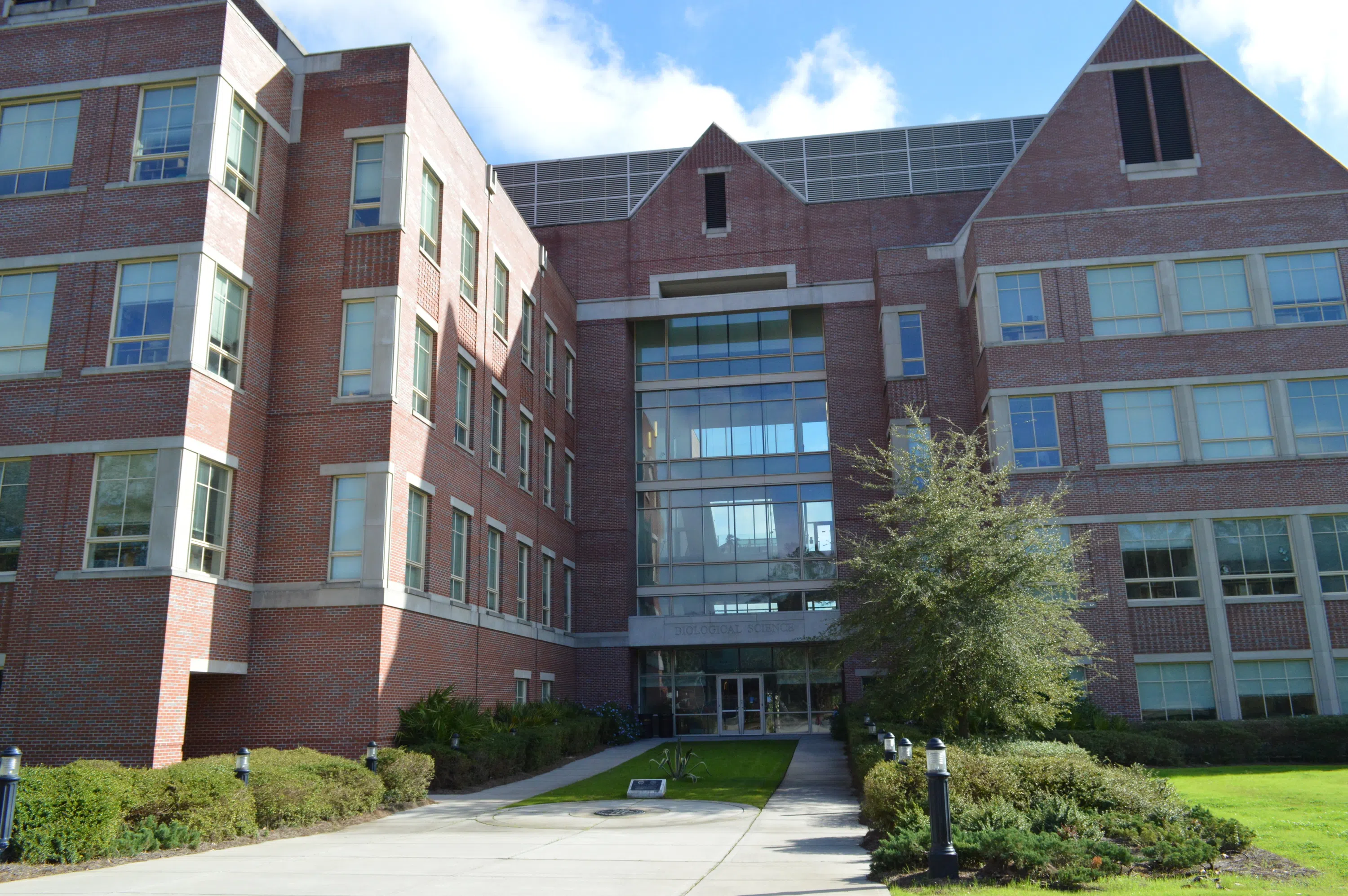Media Gallery
🏫 College of Medicine
The mission of the College of Medicine is to educate and develop exemplary physicians who practice patient-centered health care, discover and advance knowledge, and are responsive to community needs, especially through service to elder, rural, minority, and underserved populations.
The first two years of medical school, the basic sciences and early clinical exposure are taught at Florida State University and housed in the John D. Thrasher College of Medicine Building. Years three and four are community-based and focus on clinical training. The community-based model ensures that students receive training in a variety of practice settings including rural and inner-city hospitals, nursing homes, residency programs, clinics, and doctors’ offices. Clinical training sites are in Tallahassee, Pensacola, Orlando, Sarasota, Daytona Beach, Ft. Pierce, several Family Medicine Residency Programs, Marianna, Immokalee, and several other rural communities. Students are connected to the College of Medicine and the respective regional campuses through Internet access, videoconferencing, and hand–held data units. Through these units, students can access medical information, communicate with the College of Medicine main campus, and record and evaluate their clerkship and preceptorship experiences.
Undergraduate Opportunities
The mission of the Interdisciplinary Medical Sciences (IMS) B.S. Degree Program is to educate students who aspire to enter a health profession. The IMS Degree Program’s rigorous science core curriculum, individualized advising, experiential service learning, and developmental seminar and capstone course sequence enables its majors to reach their potential academically and personally, to determine a career path best suited for them, and to develop the skills, attitudes, and acumen to attain their career goals.
The degree includes health care career exploration through the IMS Experiential Service Learning Seminars series and Senior Capstone course. Students may pursue individual specialized and pre-professional interests with any of the three major options - Clinical Professions Major, Community Patient Care Major, or Health Management, Policy and Information Major - to help prepare for entry into professional training programs or become part of the healthcare workforce.
Career choices in healthcare include professional schools for medicine, dentistry, physical therapy, or physician assistant, or working in health-related nonprofit organizations, governmental and community agencies, medical records, patient education, geriatric care settings, diagnostic laboratories, hospitals, the pharmaceutical industry, medical and wellness facilities, and businesses.
The first two years of medical school, the basic sciences and early clinical exposure are taught at Florida State University and housed in the John D. Thrasher College of Medicine Building. Years three and four are community-based and focus on clinical training. The community-based model ensures that students receive training in a variety of practice settings including rural and inner-city hospitals, nursing homes, residency programs, clinics, and doctors’ offices. Clinical training sites are in Tallahassee, Pensacola, Orlando, Sarasota, Daytona Beach, Ft. Pierce, several Family Medicine Residency Programs, Marianna, Immokalee, and several other rural communities. Students are connected to the College of Medicine and the respective regional campuses through Internet access, videoconferencing, and hand–held data units. Through these units, students can access medical information, communicate with the College of Medicine main campus, and record and evaluate their clerkship and preceptorship experiences.
Undergraduate Opportunities
The mission of the Interdisciplinary Medical Sciences (IMS) B.S. Degree Program is to educate students who aspire to enter a health profession. The IMS Degree Program’s rigorous science core curriculum, individualized advising, experiential service learning, and developmental seminar and capstone course sequence enables its majors to reach their potential academically and personally, to determine a career path best suited for them, and to develop the skills, attitudes, and acumen to attain their career goals.
The degree includes health care career exploration through the IMS Experiential Service Learning Seminars series and Senior Capstone course. Students may pursue individual specialized and pre-professional interests with any of the three major options - Clinical Professions Major, Community Patient Care Major, or Health Management, Policy and Information Major - to help prepare for entry into professional training programs or become part of the healthcare workforce.
Career choices in healthcare include professional schools for medicine, dentistry, physical therapy, or physician assistant, or working in health-related nonprofit organizations, governmental and community agencies, medical records, patient education, geriatric care settings, diagnostic laboratories, hospitals, the pharmaceutical industry, medical and wellness facilities, and businesses.


